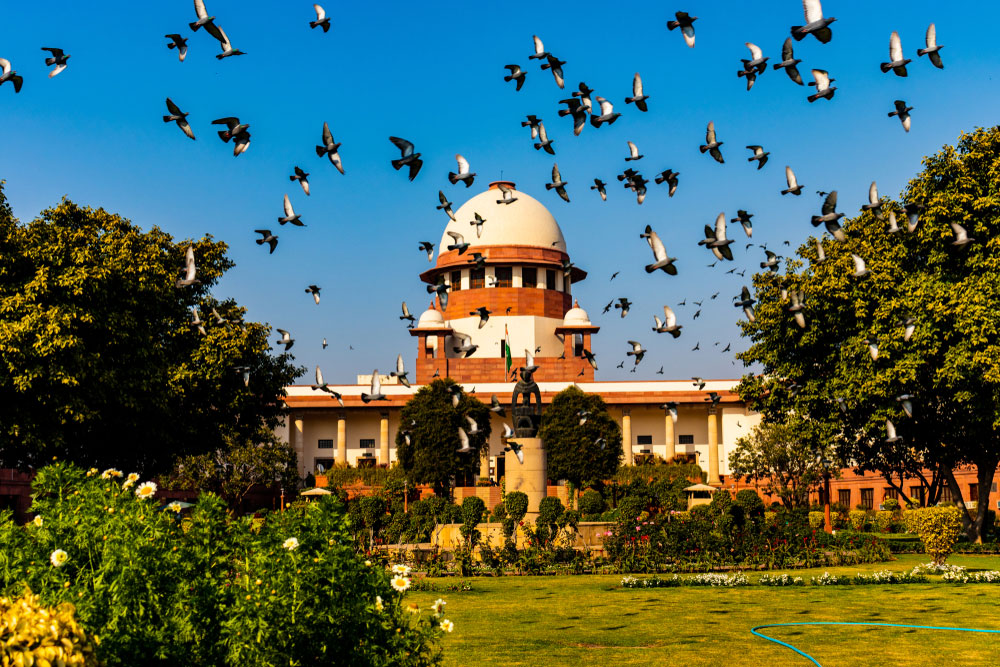The Supreme Court on Wednesday did not stay the Citizenship (Amendment) Act but asked the central government to respond to a raft of petitions that have challenged the law’s constitutional validity.
The act essentially seeks to grant citizenship to Hindu, Parsi, Sikh, Buddhist, Jain and Christian migrants who have fled persecution in Pakistan, Bangladesh and Afghanistan, and arrived in the country on or before December 31, 2014. It leaves out Muslims.
The 20-plus petitions before the court had challenged the amended act on the ground that it violates Articles 13 (right to equality), 15 (which prohibits discrimination) and 21 (right to life and liberty).
While most of the petitioners said the act discriminates against Muslims from the three countries, some outfits like the All Assam Students’ Union voiced fears it would lead to further demographic changes in the northeastern states, particularly Assam, which had for decades borne the brunt of illegal entry of foreigners.
Attorney-general K.K. Venugopal, who appeared for the government, opposed any stay order, saying neither had any date been notified for the law to take effect nor had any rules been framed.
Senior advocate Rajeev Dhavan, who appeared for some of the petitioners, too argued against a stay. While some other lawyers sought an interim stay on the law, which received presidential assent on December 12, Dhavan intervened to say that no stay could be granted as no date had been notified for the act to come into force.
Congress leader and senior advocate Kapil Sibal agreed with Dhavan, adds PTI.
Technically, an act has to be mentioned in a gazette notification before it can come into force. The notification has to specifically mention the date from when it would take effect; till then the act has no legal sanctity.
The Congress, which was one of the petitioners, made it clear that it had not sought a stay. “We only sought a show cause notice to be issued,” it said. The government must explain why it has brought minorities from only three neighbouring countries under the new law, the party added. Nepal, Myanmar, Sri Lanka and China are not covered.
The arguments, Dhavan said, could be taken up after the court reopens in January after the year-end break.
The bench, headed by Chief Justice S.A. Bobde and including Justices Bhushan Gavai and Surya Kant, turned down the plea of some petitioners from Assam that a stay be granted at least for the state.
Justice Bobde sought Venugopal’s views on advocate Ashwini Kumar Upadhyay’s plea that the court pass an order asking the government to give wide publicity about the act’s provisions. Venugopal said the government “would be too happy” to give wide publicity to remove misconceptions on the law, and no judicial order was needed.
The bench then asked the government to file its response to the petitions and fixed January 22 for the next hearing.











